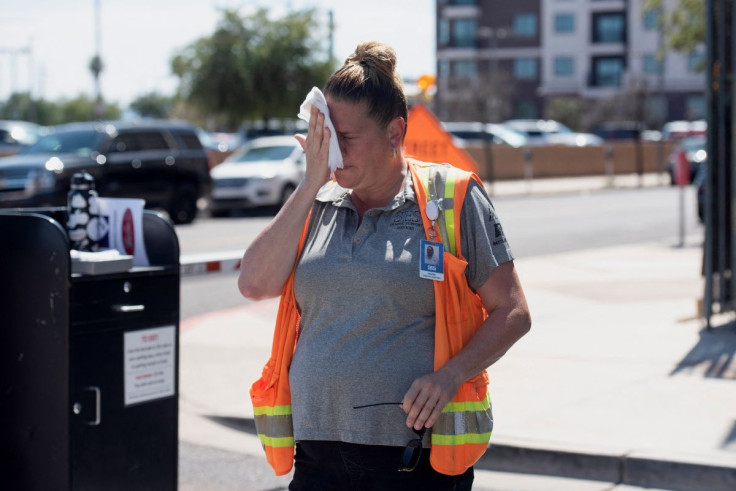Phoenix Blackout Plus Heat Wave Will Send 800,000 Residents To ER: Study

KEY POINTS
- Over 12,000 in Arizona's capital could die if the city experienced a two-day blackout during a heat wave
- Almost 800,000 residents would need ER care, overwhelming Phoenix's hospital system
- Planting trees and installing cool roofs on buildings could lessen deaths and illnesses
A multiday power blackout in Phoenix, Arizona, during a heat wave could send hundreds of thousands of city residents into hospitals' emergency rooms, a new study suggests.
According to the paper published in the journal Environmental Science and Technology, Arizona's capital could suffer immense loss of life and illness if the city experienced a two-day blackout during a heat wave, with the electricity gradually restored over the next three days.
In that scenario, an estimated 12,800 Phoenix residents would die, according to the study.
The researchers said about 789,600 residents would require emergency department care for heat-related illnesses like heat stroke. It could overwhelm Phoenix's hospital system, which has only 3,000 emergency department beds.
"I describe this as probably the greatest climate-related hazard we can imagine: a blackout during a heat wave," Brian Stone Jr., the lead author of the study and a professor in the School of City and Regional Planning at the Georgia Institute of Technology, told The New York Times.
The study noted that Phoenix residents rely heavily on air-conditioning to keep their houses and establishments cool in the desert heat.
The study warned that other cities face a similar risk, as the number of major blackouts nationwide continues to rise and climate change helps make heat waves worse and increases instances of extreme weather around the world.
For the study, researchers modeled the temperatures that residents of Phoenix, Georgia's Atlanta and Michigan's Detroit would be exposed to on an hourly basis, if the power were on during a heat wave, and if it was not.
The researchers examined historical temperatures in the cities and estimated what the temperatures would be at hundreds of points across the cities as well as the indoor temperatures for various residential buildings. They also used annual surveys collected by the Department of Labor to model how much time residents were likely to spend indoors and outdoors.
The researchers found that 3% of Atlanta's population, or about 11,600 people, would require emergency department care if a multiday blackout occurred during a five-day heat wave. They also found that 216 people would die during a heat wave and power failure in Detroit.
The team acknowledged certain limitations in their findings, including that their model assumed that people would stay indoors during a heat wave and blackout. But in reality, some people would relocate, and emergency workers would try to evacuate residents and set up power generators at cooling centers.
David Hondula, one of the authors of the study and Phoenix's first director of heat response and mitigation, said, "This is the first time we have seen a number, and it's obviously quite an alarming number" of potential illnesses and deaths during a heat wave and blackout.
Despite the bleak assessment, the study said that cities such as Phoenix could mitigate the health hazards of heat waves and blackouts.
According to researchers, if Phoenix planted enough trees to shade half of its streets, the number of deaths would drop by 27%.
If the city installed highly reflective "cool roofs" on every building, potential deaths would drop by a whopping 66% in Phoenix, they said.
With experts warning about the potential devastation of heat waves and blackouts, Phoenix Mayor Kate Gallego has urged the Biden administration to add extreme heat to the list of disasters that could prompt a federal disaster declaration in a bid for faster response.
A recently released analysis stated that two-thirds of North America, including the Southwest, could experience shortfalls in the electrical grid this summer.
In the meantime, the National Weather Service's Climate Prediction Center is forecasting cooler weather in the first days of summer in the southern U.S., including Arizona.

© Copyright IBTimes 2025. All rights reserved.






















